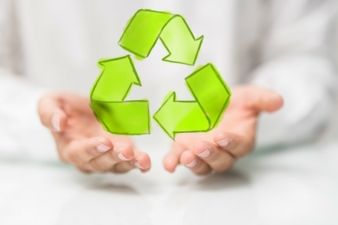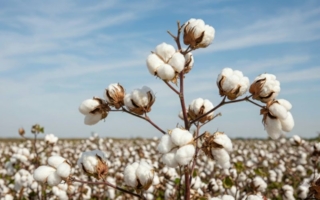31/08/2022 – Sustainable textile finishing — auf Deutsch lesen
Textile chemical products for high-performance sports
Latest product developments of the CHT Group close the loop and offers tailor-made products for the specific functionalization of textile materials in high performance sports.
Silicone is a versatile material that finds use in a wide range of different applications, and as such its commercial importance is significant. Silicones are an integral part of textile finishing as softeners, waterproofing agents, defoaming agents or lubricants. However, the production of silicones is extremely energy intensive. To fully exploit the value of this resource, end-of-life silicone products are recycled. As a result, today’s silicone waste can be used to produce an important alternative raw material for tomorrow. This approach to silicone recycling follows the waste-to value process and takes place across several stages. The end- of-life polymers are catalytically split into silicone monomers, are modified, and then finally polymerized into e.g., a new amino-modified silicone in virgin quality, which can be formulated into a fabric softener.
First fabric softener made of recycled silicone
In the past, production methods for manufacturing silicone fabric softeners were based entirely on linear concepts. With the development and production of Tubingal Rise (Recycled Innovative Silicone Emulsion), the world’s first fabric softener made of more than 60% recycled and reprocessed silicone waste and renewable bio-based emulsifiers has now been made available to the market. The quality of this product deserves to be mentioned, as it is identical to a silicone softener made of primary raw materials. The softener consisting of recycled silicone is suitable for all types of fibre. Potential areas of application include apparel, sports, and outdoor clothing. Tubingal Rise is the perfect match to recycled materials to achieve a fully integrated recycling concept. It also meets the wide-ranging requirements for textile standards (Bluesign, ZDHC, GOTS, Standard 100 by Oeko-Tex, C2C and GRS). One important characteristic of this recycled softener is that it has been specially designed to be suitable to produce textile products that are certified to the GRS Standard (Global Recycled Standard).
Chemistry based on renewable properties
The known chemical bases for durable water repellent auxiliaries such as waxes, polyethylene, paraffine, silicone, and polyurethane work well, but especially for yarns a higher resistance against mechanical friction is required. Therefore, a wide variety of bio-based polymers were tested during the development phase to significantly increase the abrasion resistance of the durable hydrophobic finishing. Through extensive screening tests, the most suitable biopolymers were formulated into a stable product: Ecoperl YWR.
Ecoperl YWR excellently stops water absorption, is versatile and highly resistant to the friction generated by sewing, knitting, and weaving processes. With a focus on the environment, Ecoperl YWR meets the criteria of well-known standards such as GOTS, Material Health Certificates (Silver) by Cradle-to-Cradle ZDHC, Bluesign, Standard 100 by Oeko-Tex and Afirm. The product has been successfully tested according to DIN EN ISO 10993, which means that no cytotoxic substances are released by it. Ecoperl YWR can also be used for hydrophobic threads/yarns in the hygiene sector. A corresponding toxicological report has been prepared.
Hydrophobic threads and yarns are used in a variety of applications, e.g., as sewing and embroidery threads for shoes, tents, bags, and backpacks. Also, for laces, cords and ropes, the hydrophobic finishing must be resistant to frequent friction and provide good anti-wick and hydrophobic properties. Braided or woven yarns for narrow fabrics, belts or other woven items for technical textiles achieve the highest standards of hydrophobic performance with Ecoperl YWR. .




